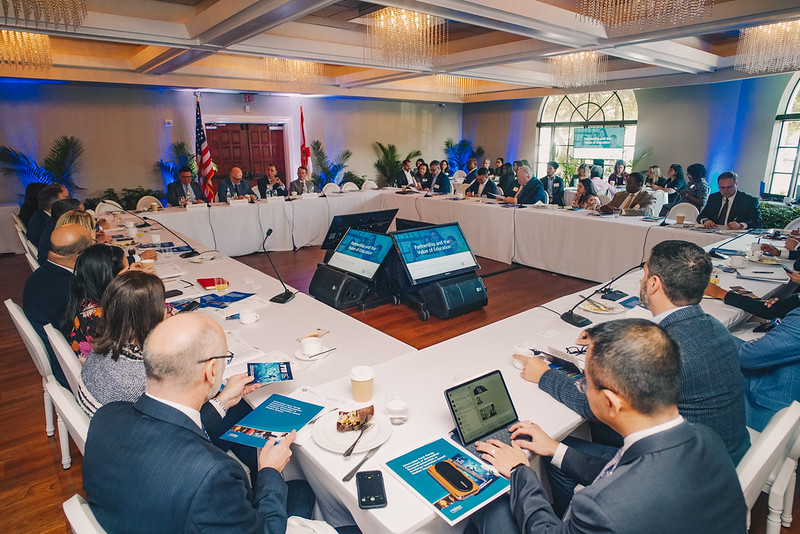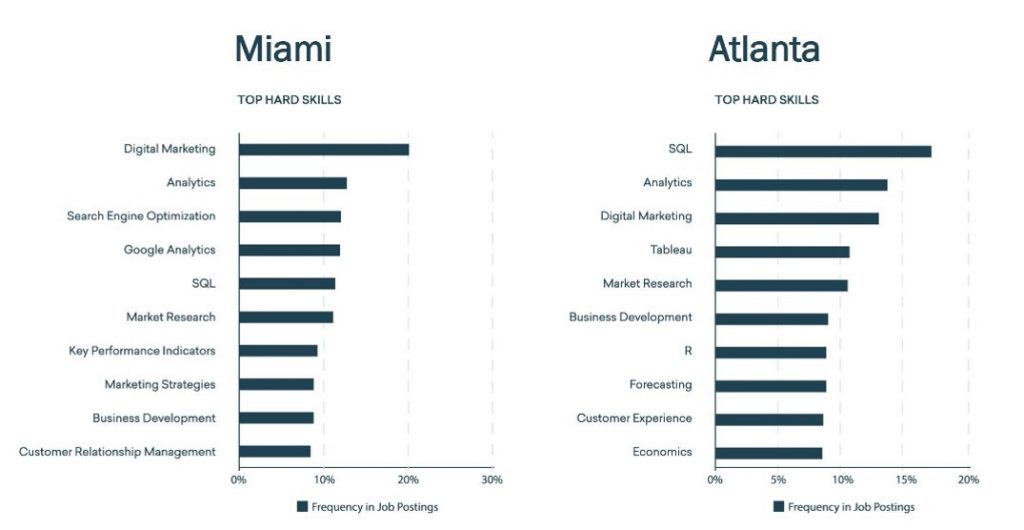What will the workplace of the future demand as we move deeper and deeper into the 21st century? The Florida Consortium of Metropolitan Research Universities recently posed this question during the Future of Talent a gathering of education, business, and civic leaders in South Florida. The Florida Consortium co-hosted this event with member institution Florida International University and Helios Education Foundation.
Dr. Michael Preston, Executive Director of the Florida Consortium kicked off the Future of Talent. In his opening remarks he acknowledged that "finding and evaluating talent is hard and the mismatch between employers and higher education is couched in antiquated processes, misaligned curriculum, and outdated job postings.”
In his opening remarks, Dr. Mark Rosenberg, President of FIU reported “that of the nearly 13 million Floridians working in the Sunshine State, 1 out of every 3 call South Florida home. They also work in Greater Miami. Many of these workers earned their degree from FIU. Today, FIU college graduates make up 15% of the workforce who have a post-secondary degree in South Florida.” Throughout his talk, President Rosenberg emphasized the importance of talent retention for South Florida. According to President Rosenberg “it’s not enough to have a world class university in Miami. FIU is committed to the community.” Today FIU ranks 4th in the United States among Carnegie Classified research one universities for state talent retention. Also impressive 80% of FIU graduates end up staying and working in Florida (78% of them staying in South Florida). This means investments in FIU are investments in South Florida.
Also noteworthy, Florida Consortium member institutions University of Central Florida and University of South Florida produce 3,000 more graduates that stay and work in Florida than the rest of the State University System of Florida combined. Together, the Florida Consortium member institutions FIU, UCF, and USF talent retention rate of 74.5%.
Paul Luna, President and CEO of Helios Education Foundation reinforced the importance of partnership during his remarks. Helios supports a dynamic roster of progressive education and community focused organization in Arizona and Florida. Arguably these organizations are focused on the untapped talent pool in both regions. Helios believes cross functional partners in government, education, employers and the community at large can develop comprehensive and connective solutions that promote social mobility and economic prosperity.
Doug Heckman, of EMSI Workforce Analytics reported that the job market in South Florida is filled with opportunities. According to EMSI data there are over 770,000 employers and over 4 million workers South Florida alone. Yet over 60% of South Floridians lack the credentials required to land high paying jobs.
During his talk Heckman offered four challenges impacting employers and job seekers alike:
- First, employers struggle to articulate and communicate the skills they value most. Furthermore, job requirements and skills in demand vary by region. For example, digital marketing roles in Miami and Atlanta are vastly different due to the industries and talent needs in those regions.
- Second, colleges and universities often don’t have access to labor market data, as a result many on campus career readiness offerings are misaligned to regional market needs. The Florida Consortium is working with EMSI to change this.
- Third, many local and state systems don’t capture the capabilities, aspirations, and potential of their local talent pool. This needs to change. Big data can be used to understand and nurture home grown talent.
- Finally, learners i.e. local talent often struggle to articulate the skills they possess and their unique value to employers. More often than not, the skills gap is more accurately a communication gap.
In closing, the Future of Talent is the first of many discussions aimed at fueling the talent pipeline, nurturing dynamic partnerships, and fostering economic growth in the Sunshine State.




